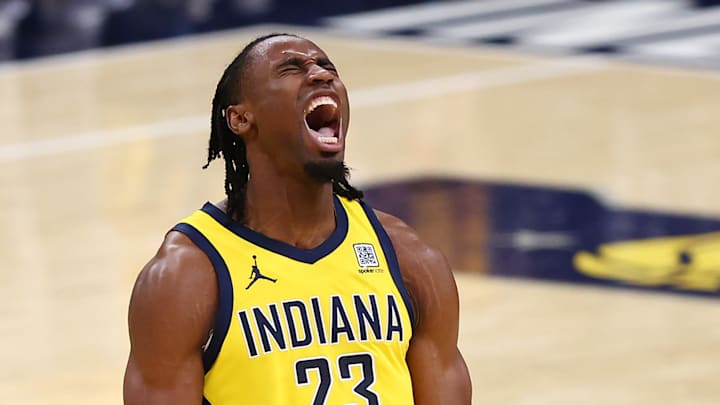Big-market NBA teams love giving up on prospects too quickly. Seriously, it's like their favorite thing to do. I'm not exactly sure why this is, but my theory is that there's a built-in hubris that comes with existing in a big market. Being an attractive destination for free agents and disgruntled stars makes those front offices quicker to dismiss guys who don't immediately produce — if a team thinks it can acquire the next available star, then developing a young player who might turn into a valuable part of the roster seems like a waste of time. Who needs him?
Small-market teams like the Pacers aren't awarded that hubris. While Indianapolis is one of the most underrated cities in the US (I'm not pandering, I swear) it's still tough to draw high-level free agents to Indiana, and the Pacers aren't usually on the wish list when stars ask to be dealt.
To compensate for that, the Pacers have instead built their roster, in part, by taking chances on guys those big-market teams cast off too early. Aaron Nesmith couldn't find consistent minutes in Boston, but has become a massive part of the Pacers core. Obi Toppin fell out of favor in New York, but has been awesome off the bench in Indy.
James Wiseman and Jay Huff are the next candidates to find their footing in Indy
James Wiseman was let go by the Warriors, played one game with the Pacers before tearing his Achilles, and still inked a two-year deal with the team this offseason. That move shows how confident Chad Buchanan and Kevin Pritchard are with their process — they believe the precedent they set with Toppin and Nesmith can apply to Wiseman too, and that he can turn into a consistent rotation piece. And you can't blame them for having that confidence. You can, I guess. I won't tell you what you can and can't do. But you shouldn't.
New Pacers center Jay Huff will also have a chance to join that group of castoff-turned-contributor. Huff started his career with the Lakers, where he played a total of four games. He had a bit of a breakout last year in Memphis — 6.9 points per game, 40.5% from 3-point — but the Grizzlies traded him to the Pacers for scraps. Scraps!
Huff will compete with Isaiah Jackson to start at center this season, and the Pacers were able to add him simply because no one else was willing to part with future second-round picks. You'd think the Pacers making an NBA Finals appearance the year after an Eastern Conference Finals appearance would be enough evidence for other small-market teams to follow their lead, but apparently not.
Pacers front office goes its own way in building a team
Other small-market teams are insistent on trying to build like big-market teams. The Pacers understand that won't work for them, and that understanding is a large part of why things have gone so well in recent years.
Indy's front office built the edges of this team with unheralded free agent pickups and trades that barely register on the NBA's Richter scale but prove to be ultra-valuable regardless. The core, meanwhile, was built with two trades for borderline stars who immediately formed to create one of the best two-man duos in the NBA.
With Tyrese Haliburton out, Pritchard, Buchanan and the other decision-makers can use 2025-26 as an evaluation year. Maybe they make another crafty trade at the deadline for a player who disappointed in his original stint in a big city. It wouldn't be the first time, and it's been a staple in building the Pacers roster into what it is today — which is, to say, a contender.
